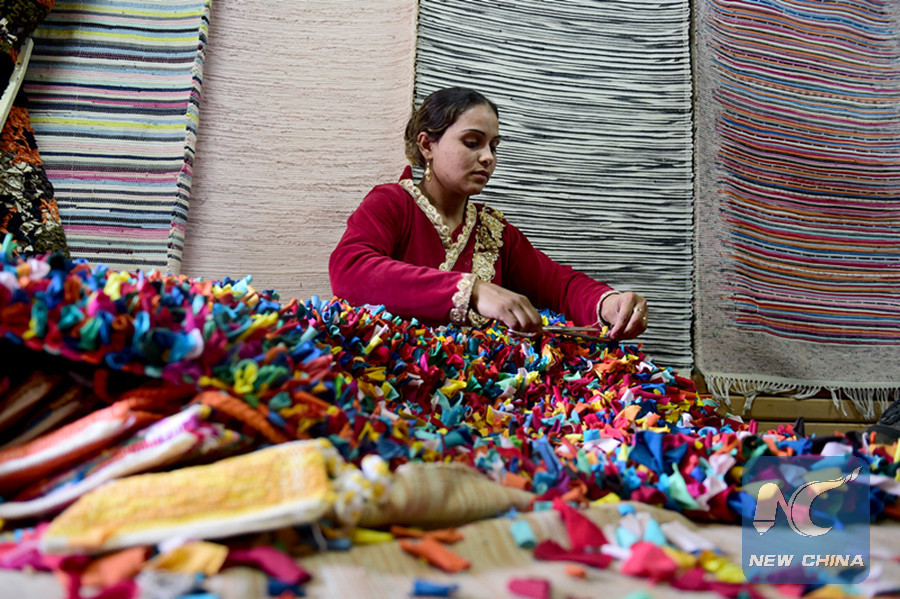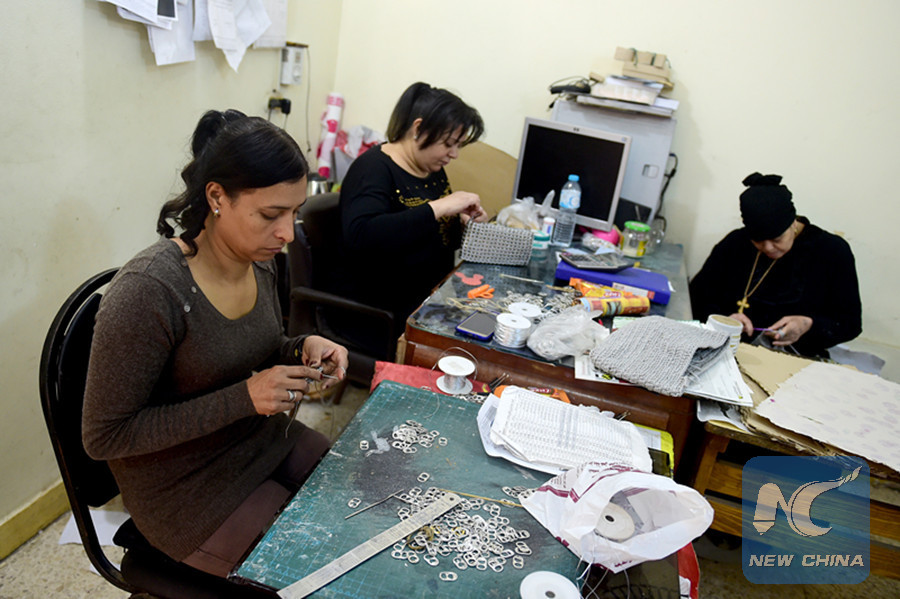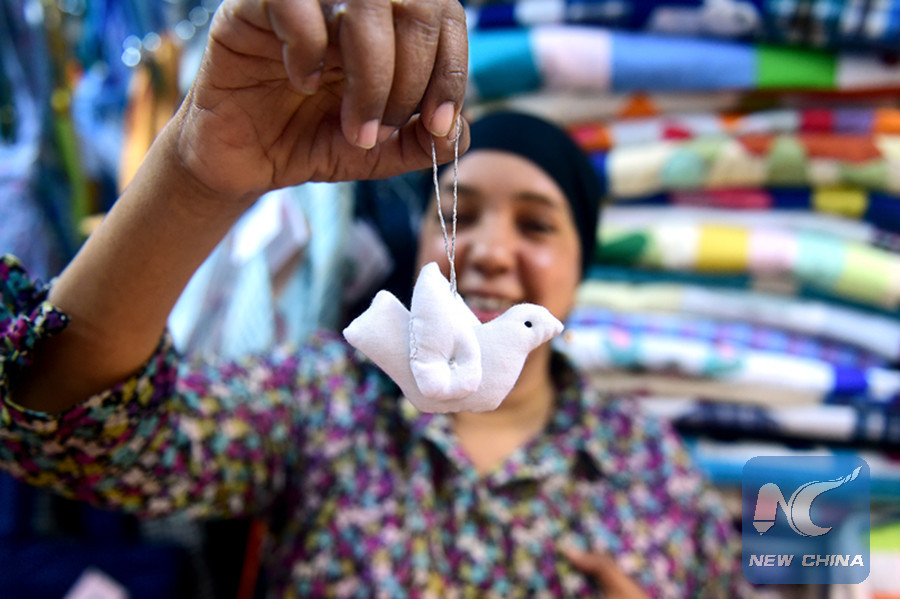
An Egyptian woman makes a carpet from recycled materials at a workshop in Mokattam area of Cairo, Egypt, on March 7, 2018. The Association for the Protection of the Environment (APE) set up the workshop as an income generating program aimed to empower women of the Zabbaleen (garbage collector in Arabic) community to better their lives. (Xinhua/Zhao Dingzhe)
by Marwa Yahya
CAIRO, March 7 (Xinhua) -- While passers-by try to avoid the bad smells of tons of piled-up garbage at the far southern end of Manshiyat Naser slum in the Egyptian capital Cairo, some women are working there to turn the waste into beautiful products.
"Women can get water out of stone," said Nagat, a mother of four children, who has worked for 22 years in the papercraft department of the Association for the Protection of the Environment (APE).
Her department receives leftover paper from schools, universities and embassies to make gift bags, notebooks and colorful cards, the 37-year-old woman told Xinhua, while adorning a card with dried flowers.
Working with informal garbage collectors in Cairo known as the Zabbaleen (garbage collector in Arabic), the APE focuses on developing waste management and recycling techniques, which could in turn help the Zabbaleen community recycle and reuse the garbage in an environmental-friendly way.
Working more than six hours a day, Nagat said her salary contributes to the household expenses and her children's education and welfare.

Egyptian women make handicrafts from recycled materials at an APE workshop in Mokattam area of Cairo, Egypt, on March 7, 2018. (Xinhua/Zhao Dingzhe)
Cairo is an immense city of 20 million inhabitants. Despite the capital's enormous size, these informal Zabbaleen garbage collectors can handle at least 40 percent of its waste.
The Zabbaleens do not merely collect and dispose of garbage. Instead, they recycle nearly 80 percent of it with the help of the APE.
Wandering inside the factory of the APE, visitors will find other units for rug weaving, patchwork and cans recycling, which provide young women with skills, an income and, most importantly, a sense of empowerment and improved self-esteem: women can produce beautiful and high-quality work.
"I was so happy and proud when I saw ladies at all levels love my bags and accessories," said Sahar, who also works in the APE.
The smile did not left her face while she was busy using cans and old magazines to make incredible necklaces and wristbands.
The 28-year-old female worker said she is from a conservative village in Upper Egypt where women usually stay home, marrying young and taking care of children.
"But I want to work to see the world and to help my husband for better living conditions," she said.

An Egyptian woman displays a handicraft made from recycled materials at an APE workshop in Mokattam area of Cairo, Egypt, on March 7, 2018. (Xinhua/Zhao Dingzhe)
Founded in the late 1980s, the APE factory employs about 300 women and trains them to read, write, draw and design usable and wearable daily items from the factory's leftovers.
Every day around dawn, tens of thousands of men leave their homes in Manshiyat Naser slum area to collect tons of garbage across the capital, while women are responsible for sorting them for recycling.
"I got so tired of working in categorizing cans, plastic and leftover food, the job I inherited from my father who was working as a garbage collector," said a 55-year-old woman in the factory, who did not reveal her name.
"My products are displayed everywhere now," she said proudly.
"I have encouraged hundreds of women in the neighborhood to change their lives by joining training courses in the association in knitting and get a better job and improved living conditions," the old woman added.
According to her, the women in the APE can earn 800-2,000 Egyptian pounds (45-113 U.S. dollars) per month during the training courses.
Acting as a safe hub for such a self-enclosed community, the APE has been working for almost three decades to offer much-needed work, health and education care to more than 70,000 residents in the Garbage City of Cairo.
Meanwhile, there are at least 20 volunteers who are dedicating themselves to the empowerment of women in the poor community.
Huda Alexander, an ex-instructor for English-language at the American University in Cairo, came to the APE to train women to design from the old Egyptian heritage.
She told Xinhua that she spent a space of valuble time in adding new values to these women, who have become the primary breadwinners of their families.
"The working ladies could provide better education and care for their children, which will eventually benefit the society," Alexander noted, while cutting a piece of paper featuring the famous ancient Egyptian colorful goose.

